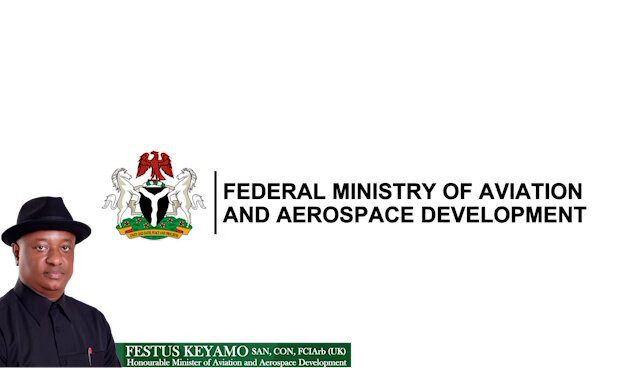The aviation sector, like many industries, experiences its share of labour disputes. However, in the case of aviation, a key contributing factor to these disputes has been identified as a breakdown in communication between labour unions and management. This observation comes from Nnadi Hector, the Secretary of the Joint Aviation Trade Unions Forum, who highlights the critical role of open and consistent communication in mitigating and resolving workplace conflicts. He emphasizes that the proactive engagement of the Minister of Aviation and Aerospace Development in facilitating dialogue between the two sides has proven instrumental in addressing numerous issues, including those affecting the Nigerian Meteorological Agency (NiMet). This continuous engagement fosters a sense of shared understanding and collaborative problem-solving, ultimately minimizing the likelihood of disputes escalating into disruptive actions.
Hector underscores the ongoing nature of labour relations, acknowledging that the pursuit of worker welfare is a continuous process. The availability of a proactive minister who prioritizes communication and engagement creates an environment conducive to addressing concerns as they arise. He explains that the unions and management have established common ground on several issues, signalling a willingness to work together towards mutually acceptable solutions. While some matters, including those related to NiMet, remain under discussion and are at various stages of resolution, the commitment to dialogue remains strong. This ongoing dialogue is pivotal in ensuring that all parties are kept informed of progress and challenges, reducing the potential for misunderstandings and mistrust.
The core issue, as Hector points out, often lies in the communication gap between labour and management. When communication channels are open and functioning effectively, and when authorities like the minister actively engage with all parties involved, the likelihood of problems arising significantly diminishes. Transparency and open dialogue allow all stakeholders to gain a clear understanding of the situation, the efforts being made to address concerns, and the current status of those efforts. This transparency fosters trust and encourages collaboration, paving the way for smoother labour relations. By bringing all matters to the table and demonstrating a genuine commitment to finding solutions, the minister’s proactive approach has demonstrably helped to minimize conflict.
Contrary to common perceptions, union leaders do not relish the prospect of strikes or protests, Hector clarifies. These actions are often a last resort, undertaken only when other avenues for resolving disputes have been exhausted. The proactive engagement of the minister in facilitating dialogue and finding solutions preemptively addresses concerns, thus reducing the need for such disruptive measures. Hector emphasizes the minister’s commitment to this approach, noting that regular meetings are held to discuss and address various issues, including those related to NiMet. These meetings, often presided over by the minister, provide a platform for open communication and collaborative problem-solving, ensuring that all parties remain focused on finding solutions rather than resorting to conflict.
The collaborative approach adopted by all parties is evident in the regular meetings held to discuss ongoing issues. The minister’s active involvement in these meetings, coupled with the inclusion of union leaders in relevant committees, demonstrates a genuine commitment to finding solutions. This inclusive approach ensures that all perspectives are considered and that all parties are working towards a common goal. Hector emphasizes that both unions and management are dedicated to resolving issues and making progress, further highlighting the collaborative spirit that pervades these discussions. This shared commitment to finding solutions lays the foundation for a positive and productive working relationship between labour and management.
Finally, Hector acknowledges that some matters extend beyond the minister’s immediate authority. However, even in these instances, the minister continues to exert efforts to ensure that these broader issues are also addressed. This proactive approach, even when dealing with matters outside his direct purview, further underscores the minister’s commitment to finding solutions and maintaining positive labour relations within the aviation sector. By actively engaging with all stakeholders and persistently pursuing solutions, the minister plays a crucial role in fostering a cooperative and productive environment within the industry. This proactive and collaborative approach to addressing labour issues is essential for maintaining stability and ensuring the continued smooth operation of the aviation sector.


